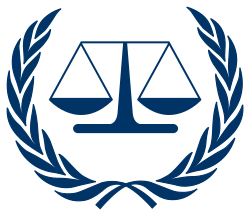 The seal of the International Criminal Court | |
| File no. | 01/12 |
|---|---|
| Referred by | Mali |
| Date referred | 13 July 2012 |
| Date opened | 16 January 2013 |
| Incident(s) | Mali War |
| Crimes | War crimes: · Intentionally directing attacks against buildings dedicated to religion · Destruction of cultural world heritage in the Malian city of Timbuktu |
| Status of suspects | |
| Ahmad al-Faqi al-Mahdi | Served a 7 year sentence |
| al-Hassan Ag Abdoul Aziz | Convicted |
| Iyad Ag Ghaly | Fugitive |
| Website: https://www.icc-cpi.int/mali | |
The International Criminal Court investigation in Mali or the Situation in the Republic of Mali is an ongoing investigation by the International Criminal Court (ICC) into war crimes and other crimes within the ICC's jurisdiction that are alleged to have occurred during the Mali War since January 2012. [1] The investigation was requested by the government of Mali in July 2012. [2] [1] [3] [4] As the first person who pleaded guilty to a charge of the ICC, Ahmad al-Faqi al-Mahdi made a statement expressing remorse and advising others not to commit similar acts. [5]
Contents
On 27 September 2016, al-Mahdi was sentenced to nine years in prison for the destruction of cultural world heritage in the Malian city of Timbuktu. At least nine mausoleums and one mosque were destroyed. [6] On 26 June 2024, al-Hassan Ag Abdoul Aziz was found guilty of crimes against humanity and war crimes. [7]
